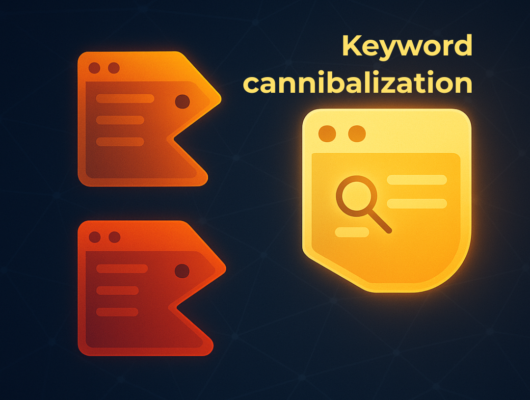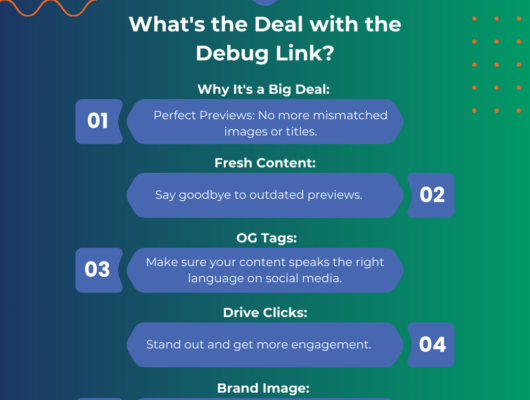In the fast-paced world of SEO, tactics rise and fall. Search engine algorithms evolve, user behavior shifts, and what worked yesterday might be ineffective or even harmful today. This leaves many businesses, particularly those in specialized fields like home automation, smart home integration, and AV installation, asking a crucial question: do SEO directories still matter in 2025? Are practices like directory submission good for SEO, or are they relics of a bygone internet era?
The confusion is understandable. Once a cornerstone of off-page SEO, directories faced a backlash after years of misuse. Yet, whispers of their relevance persist, especially concerning local SEO and niche visibility. This guide cuts through the noise, offering a data-informed look at the current role of SEO directories, specifically for businesses in the home automation, smart home, and AV industries.
We’ll trace the history of directories for SEO, analyze their modern impact, differentiate between key types (including those vital for your niche), weigh the benefits against the risks, and outline actionable best practices aligned with current search engine expectations. The focus has definitively shifted from quantity to quality, and understanding this evolution is key to leveraging directory listings for SEO effectively in 2025 and beyond. Forget mass submissions; think strategic placement.
This post will cover:
- The definition and history of web directories.
- Their current value proposition for SEO.
- Different types: general, local, and niche (with home automation/AV examples).
- The potential benefits and significant risks.
- Best practices for identifying and utilizing high-quality directories.
- Examples of reputable directories relevant to your industry.
Let’s dive in.
From Phone Books to Pixels: The Rise, Fall, and Shift of SEO Directories
To understand the current state of SEO directories, it’s essential to look back at their origins and evolution.
What Exactly Are SEO Directories?
At their core, web directories (or link directories) are online lists or catalogs of websites, typically organized into categories, subcategories, niches, or geographic locations. Think of them as the Yellow Pages for the internet age. Historically, unlike search engines that use automated web crawlers, most web directories were built and maintained manually by human editors who reviewed submissions for fitness and relevance. Each entry typically includes a link to the website, its title, and a description. Their initial purpose was simply to help users navigate the growing web before sophisticated search engines became dominant.
A Brief History: When Directories Ruled the Web
In the early web (1990s), before powerful search engines like Google, directories like Tim Berners-Lee’s WWWVL, the Yahoo! Directory, and DMOZ were indispensable gateways. Getting listed was crucial for visibility.
However, as search engines advanced, SEO practitioners realized directories were an easy source of backlinks – a key ranking factor. This led to an era of mass directory submission, focusing on link quantity over quality. Many directories capitalized on this, charging fees for listings.
The Algorithm Effect: How Google Changed the Game (Penguin & Beyond)
This quantity-focused approach led to widespread abuse. Low-quality, spammy directories flooded the web, created solely to sell links, often containing irrelevant listings and using manipulative tactics. Webmasters engaged in keyword stuffing and excessive exact-match anchor text in submissions.
Google responded decisively, most notably with the Penguin update in April 2012. Penguin targeted unnatural link building, heavily penalizing sites reliant on low-quality directories, link farms, and those with over-optimized anchor text. Websites saw sharp ranking drops or de-indexing. This forced a shift towards earning high-quality, relevant links naturally and necessitated tools to disavow toxic backlinks. Penguin is now part of Google’s core real-time algorithm.
This history—from essential tool to exploited tactic to penalized practice—explains the skepticism around directories today. Understanding why they fell out of favor (spam, penalties) is key to understanding how they can still be used effectively: by focusing on quality, relevance, and specific use cases like local SEO.
The Real Score: Do Directory Submissions Actually Help Your SEO Today?
Given the history and risks, what tangible benefits do directory submissions offer now? The answer is nuanced. The value has shifted from direct link equity to other advantages.
Beyond the Backlink: Understanding Modern Value
The primary value of listing in most directories today, especially general ones, is rarely about passing significant PageRank to boost rankings directly. Google’s algorithms are adept at identifying and devaluing easily obtained links. If anyone can get a link there, it offers little competitive edge.
However, directories still offer significant value in several key areas:
- Local SEO & Citations: This is arguably the most significant benefit today. Directories, particularly local and reputable niche ones, are crucial for building local citations. A citation is any online mention of your business’s Name, Address, and Phone number (NAP). Consistent and accurate NAP information across multiple trusted sources is a key ranking factor for local search results, including the Google Map Pack. With a large percentage of searches having local intent and leading to offline actions, maintaining accurate citations is vital for local businesses like home automation installers and AV integrators.
- Visibility & Discovery: High-quality directories, especially respected niche or local ones, often rank well themselves for relevant searches. Being listed provides another pathway for potential customers to discover your business (sometimes called “Barnacle SEO” – attaching to sites that already rank well).
- Referral Traffic: A listing on a relevant, authoritative directory with genuine user traffic can send qualified visitors directly to your website. Users Browse a niche directory for “home automation installers” are likely highly targeted leads.
- Brand Building & Trust: Appearing on reputable directories enhances your business’s credibility. Consistent NAP information builds consumer trust; inconsistencies erode it. Many directories also feature customer reviews, further influencing perception.
- Foundational Links: For brand-new websites, submitting to a handful of relevant, high-quality directories can help establish an initial online footprint and encourage search engine crawling.
Our Take: Quality Over Quantity
We generally advise caution regarding directory submissions for direct link building value. Indiscriminate submission is seen as low-impact. The emphasis is strongly on quality over quantity. Submitting to niche-related directories with high editorial standards might be acceptable, often identified by analyzing competitor backlinks. While acknowledging their role as “foundational links,” the primary modern value highlighted, especially in local SEO content, lies in building local citations from trusted sources.
Interestingly, there seems to be a distinction in how search engines evaluate directory links versus directory mentions (NAP citations), particularly for local SEO. While many directory links may carry little direct ranking weight, the verified presence and accuracy of your business information (NAP) on these platforms act as crucial trust and relevance signals for local algorithms.
Know Your Directories: General, Local, and Niche (Especially for Your Industry)
Not all directories are created equal. Understanding the types is crucial for your strategy, especially in the home automation and AV sectors.
- General Web Directories: Broad scope (e.g., BOTW, AboutUs). Limited direct SEO value now, unless the directory itself has high authority and traffic. Low-quality ones can be risky.
- Local Business Directories: Geographically focused (e.g., cities, regions). Critical for local SEO.
- Examples: Google Business Profile (GBP), Bing Places, Apple Maps Connect, Yelp, Yellow Pages, Foursquare, Facebook Business Pages, Better Business Bureau (BBB), Local Chamber of Commerce sites, Data Aggregators (Data Axle, Neustar Localeze, Foursquare – feed other directories).
- Value: Essential for NAP citations, local rankings (Map Pack), local traffic, and community trust.
- Niche Directories: Industry or topic-specific. Highly valuable for specialized businesses.
- Value: Strong relevance signals, highly targeted referral traffic, industry authority/credibility, potential for quality backlinks from respected sources.
- Examples for Home Automation/Smart Home/AV:
- Industry Associations: CEDIA (“Find a Smart Home Professional”), AVIXA (Member Directory). Requires membership, signals high professionalism.
- Home Service Marketplaces: Angi, HomeGuide, Houzz. Good for residential leads and reviews, but broader audience.
- Industry Publications/Tech Directories: Residential Tech Today Business Directory, Smart AI Business Directory, WIOMAX IoT Directory, lists within publications like Commercial Integrator (e.g., SCN Top 50).
- Manufacturer Partner Locators: Found on websites of brands like Control4, Crestron, Lutron, Savant, etc. Invaluable for qualified leads invested in specific ecosystems. Google also has resources for smart home device developers.
- Relevant General Business Directories: Sites like Business.com might have relevant categories, but less targeted.
| Directory Type | Example(s) | Primary SEO / Business Value | Key Consideration |
|---|---|---|---|
| Local (Essential) | Google Business Profile, Bing Places, Apple Maps, Yelp, Local Chamber | Local Citations (NAP Consistency), Local Pack Ranking, Local Leads | Foundational for any business serving a specific area |
| Niche (Industry Assoc.) | CEDIA Find a Pro, AVIXA Member Directory | High Industry Authority & Credibility, Targeted Leads (B2B/B2C) | Membership Required, Strong Signal of Specialization |
| Niche (Home Service) | Angi, HomeGuide, Houzz | Lead Generation (Residential), Consumer Reviews, Project Showcase | Broader Audience, May Compete on Price |
| Niche (Manufacturer) | Control4 Dealer Locator, Lutron Find a Pro (Check specific manuf. sites) | Highly Qualified Leads (Ecosystem Specific), Brand Endorsement | Requires Certification/Partnership |
| Niche (Tech/Pub/IoT) | ResTech Today, WIOMAX, Relevant Tech Blogs | Niche Visibility, B2B Connections, Potential Backlinks | Variable Quality/Traffic, Assess Relevance |
| General Business/Review | BBB, Yellow Pages, Foursquare | Foundational Citations, Brand Trust, Broader Visibility | Lower Targeted Traffic, Focus on High Authority |
Weighing the Options: Benefits vs. Significant Risks
Strategically using directories requires understanding both the rewards and pitfalls.
The Upside: Why Bother with Directories?
- Improved Local Search Visibility: Fundamental for local rankings via NAP citations.
- Targeted Referral Traffic and Leads: High-quality niche/local directories drive relevant inquiries.
- Enhanced Brand Visibility and Awareness: Increased chances of being found.
- Increased Trust and Credibility: Association with reputable platforms and positive reviews.
- Potential for Quality Backlinks: From authoritative, relevant, moderated directories.
- Competitive Analysis Insights: Discover opportunities by seeing where competitors are listed.
The Downside: Avoiding Penalties and Wasted Effort
- Risk of Penalties (Historical Context): Associating with low-quality, spammy directories (especially via mass submission) can still risk penalties under Google’s guidelines against manipulative link schemes.
- Low ROI / Wasted Resources: Time/money spent on irrelevant, low-traffic, or poor-authority directories yields minimal return. Manual submission is time-consuming.
- NAP Inconsistency Issues: A major modern risk. Errors or variations in Name, Address, Phone confuse search engines and customers, hurting local SEO and trust.
- Difficulty in Management: Keeping track of logins and updating information across many listings is burdensome. Listing management services exist but have costs.
In 2025, the biggest risk isn’t necessarily a dramatic Google penalty (if focusing on quality), but wasting resources on ineffective directories and the negative impact of NAP inconsistency.
The Praesto Marketing Playbook: Directory Strategy & Best Practices
Navigate complexities and maximize benefits with a strategic approach: quality, relevance, consistency.
How to Identify Directories Worth Your Time (Using Data & Tools)
- Prioritize Quality & Relevance: Is it well-regarded? Relevant to home automation/AV or your local area?
- Check Domain Authority/Rating (DA/DR): Use Ahrefs Site Explorer or Moz Domain Analysis. Higher scores (e.g., DR 30+) often indicate more authority.
- Assess Organic Traffic: Does it get real visitors? Use a Website Traffic Checker. Low traffic = low value.
- Evaluate Editorial Process: Look for manual review and clear guidelines. Avoid instant/automated approvals.
- Check Niche/Local Relevance: Does the audience match your target market?
- Look for User Experience (UX): Is the site clean, organized, maintained, mobile-friendly? Avoid cluttered, outdated sites.
- Google Search Test: Search “[your service] [your city]”. If a directory ranks high consistently, consider it.
| Quality Factor | What to Look For | Warning Signs | Tools to Use |
|---|---|---|---|
| Relevance | Clear fit with Home Automation/AV/Smart Home industry or your local service area | Broadly irrelevant topics, mismatched audience | Manual Review, Competitor Analysis |
| Domain Authority/Rating | Moderate to High score (e.g., DR 30+) reflecting credibility | Very low or inconsistent score | Ahrefs Site Explorer, Moz Domain Analysis |
| Organic Traffic | Steady, significant organic traffic (benchmark: 1000+ visits/month) | Little to no organic traffic, heavy reliance on ads | Ahrefs Site Explorer/Traffic Checker, Similarweb |
| Editorial Process | Manual review, clear guidelines, vetting for legitimacy | Automated/instant approval, no clear standards | Directory’s Submission Info, Manual Review |
| NAP Consistency Focus | Clear, distinct fields for Business Name, Address, Phone, Website | Missing NAP fields, inconsistent formatting allowed | Directory Listing Form, Existing Listings |
| User Experience (UX) | Clean design, easy navigation, actively maintained, mobile-friendly | Outdated interface, broken links, excessive ads, poor mobile experience | Manual Website Review |
| Cost | Free, or a justifiable fee based on proven traffic/lead value/authority | High fees with unclear benefits, recurring fees for listings that disappear | Directory Pricing Page, ROI Analysis |
| Competitor Presence | Successful competitors are listed | No relevant competitors listed | Ahrefs Link Intersect, Manual Search on Directory |
Submission Essentials: NAP Consistency, Descriptions, and Categories
- NAP Consistency is KING: Use your EXACT official Name, Address, Phone number everywhere. No variations! Keep website URL and hours consistent too.
- Craft Unique, Engaging Descriptions: Avoid copy-pasting. Write clear, compelling summaries highlighting unique selling points (certifications, brands, specialized services). Use keywords naturally, don’t stuff. Tailor slightly for each directory.
- Select the MOST Specific Categories: Choose the most precise category (e.g., “Home Automation Installer,” not just “Technology”).
- Use High-Quality Images/Visuals: Upload professional photos if allowed.
- Follow Guidelines: Adhere to each directory’s specific rules.
Ongoing Maintenance: Keeping Your Listings Accurate
Directory submission is not a one-time task. Maintenance is crucial.
- Regular Verification: Periodically check listings on key directories for NAP accuracy.
- Update Information Promptly: Update immediately if you move, change phone/hours/name.
- Monitor Reviews: Regularly check and respond professionally to reviews on platforms like GBP, Yelp, Angi.
- Check Links: Ensure links to your website work correctly.
Effective directory management is an ongoing part of online reputation and local presence optimization.
Top Directory Examples for Home Automation, Smart Home & AV Businesses
While the “best” list varies, these form a strong foundation:
The Foundation: Essential Local & General Listings
- Google Business Profile (GBP): Non-negotiable for local SEO.
- Bing Places for Business: Visibility on Bing.
- Apple Maps Connect: Visibility on Apple Maps (iPhone users).
- Primary Data Aggregators (US Focus): Data Axle, Neustar Localeze, Foursquare (distribute NAP widely).
- Major General/Review Sites: Yelp, Facebook (Business Page), Yellow Pages (YP.com), Better Business Bureau (BBB).
Industry Gold: Key Niche Directories
- CEDIA: “Find a Smart Home Professional” (for member integrators). Value: High credibility, targeted leads for custom projects.
- AVIXA: AV Provider Directory (for AV professionals/businesses). Value: Industry networking, B2B, AV credibility.
- Home Service Marketplaces: Angi, HomeGuide, Houzz. Value: Residential lead volume, reviews.
- Manufacturer Partner Finders: Check sites of brands you install (Control4, Crestron, Lutron, Savant, etc.). Value: Highly qualified ecosystem-specific leads.
- Specialized Tech/Industry Directories: ResTech Today Business Directory, IoT directories (e.g., WIOMAX), directories within industry publications. Value: Niche visibility, tech community reach.
- Local Chamber of Commerce & Business Associations: Value: Strong local SEO signal, local trust.
Note: For specialized services (custom AV, complex automation), directories from industry bodies (CEDIA, AVIXA) and manufacturers often yield higher quality leads and authority than broad consumer marketplaces (Angi, HomeGuide).
Conclusion: Strategic Placement Trumps Mass Submission
So, are SEO directories still relevant for home automation and AV businesses in 2025? Yes, absolutely – but not in the way they once were.
The era of submitting to hundreds of low-quality directories for dubious link equity is over and potentially harmful. The modern value lies in strategic placement on high-quality, relevant platforms, with a primary focus on:
- Local SEO: Building consistent and accurate NAP citations on essential local directories (GBP, Bing, Apple, Yelp, etc.) is crucial for local search visibility.
- Niche Relevance: Leveraging industry-specific directories (like CEDIA, AVIXA, manufacturer finders) establishes authority, builds credibility, and drives highly targeted leads within the home automation and AV space.
- Quality & Trust: Appearing on reputable platforms enhances brand perception and consumer trust.
Forget quantity. Focus on identifying directories that offer genuine value through relevance, authority, traffic, and strong editorial standards. Prioritize meticulous NAP consistency across all listings. View directory management not as a one-off SEO trick, but as an ongoing process of maintaining your online presence and reputation.
By adopting this quality-focused, strategic approach, home automation and AV businesses can effectively leverage directories as a valuable component of their SEO and marketing strategy in 2025 and beyond.







